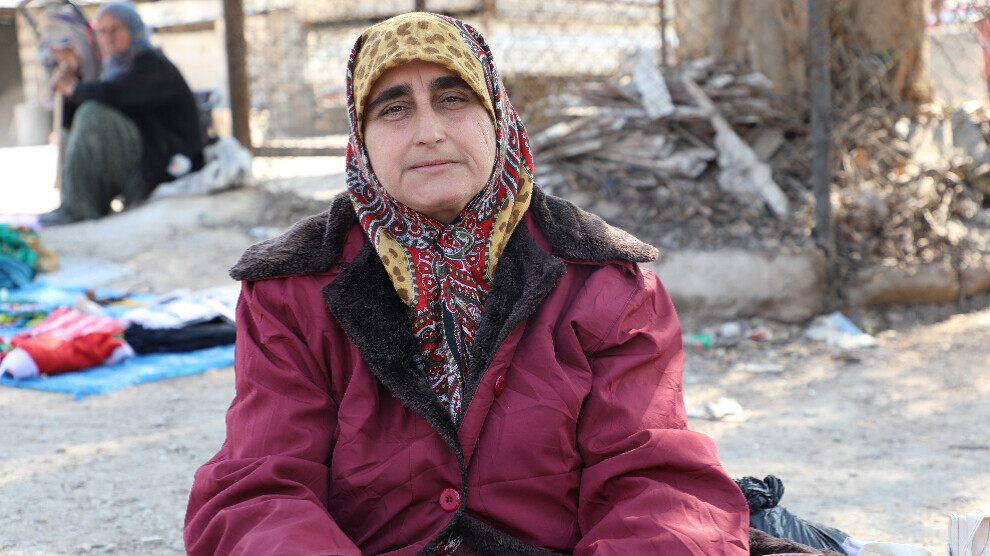Fatma, a story of emancipation
Fatma from Afrin struggles against the male perception of women working in the market and survives thanks to manual labor.
Fatma from Afrin struggles against the male perception of women working in the market and survives thanks to manual labor.

Fatma Mihemed (49), who makes a living making handicrafts by hand, wanted to reach society and set an example for women as time passed.
Fatma, who is from Afrin, learned how to make handicrafts at the age of 10. She is trying to overcome financial difficulties with her manual labor, a skill she inherited from her mother. She opened a stand for the first time in Qamishlo. She had come there from Aleppo in 2006. Fatma said: “I loved doing handicrafts. Over time, I felt that my family was struggling economically and I wanted to help them using my hands. I started with 11 writings. Today, however, I have reached the level that is demanded and I am able to do anything of my own free will.”
Breaking society's perception
Fatma said: “We got used to the environment we lived in Aleppo. We knew each other there, but when I came to Qamishlo and decided to set up the first stand, I faced a great reaction. Men in particular were saying that it was not right for women to work in the market, that it was a shame. In fact, women also reacted. They were surprised at my courage, but gradually they got used to me and my stand. I broke the prejudice against women, we became like a family.”
Fatma, who started making handicrafts to overcome her financial difficulties at the beginning, said how things have changed overtime: “Providing a livelihood for the family was my main goal at first, but then I realized that material things were secondary. I stepped from a small circle into a large community. I am making a living with my work. I recognized myself. It made me proud to stand on my own two feet and set a model in society. I proved that we can continue our lives on our own and with our manual labor. I have encouraged many women to do the same. Although it was shameful at first, they got used to it over time and I convinced dozens of women to work. They came out of the house. Today, they both make a living and prove the will of women. I think that women's involvement in society and giving direction to society can be achieved through such work.”